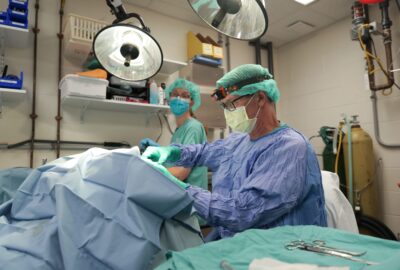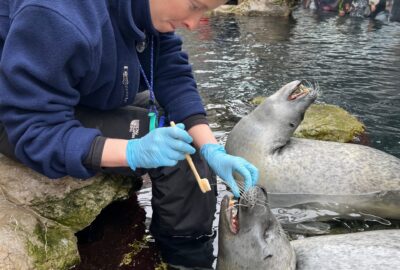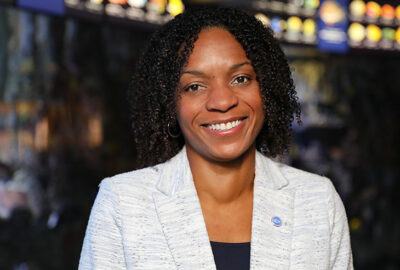From Aquarium Intern to Director of Animal Health
Meet Dr. Melissa Joblon and hear a bit about her path from an aspiring veterinarian to the leader of our Animal Health Department.
By New England Aquarium on Sunday, June 16, 2024

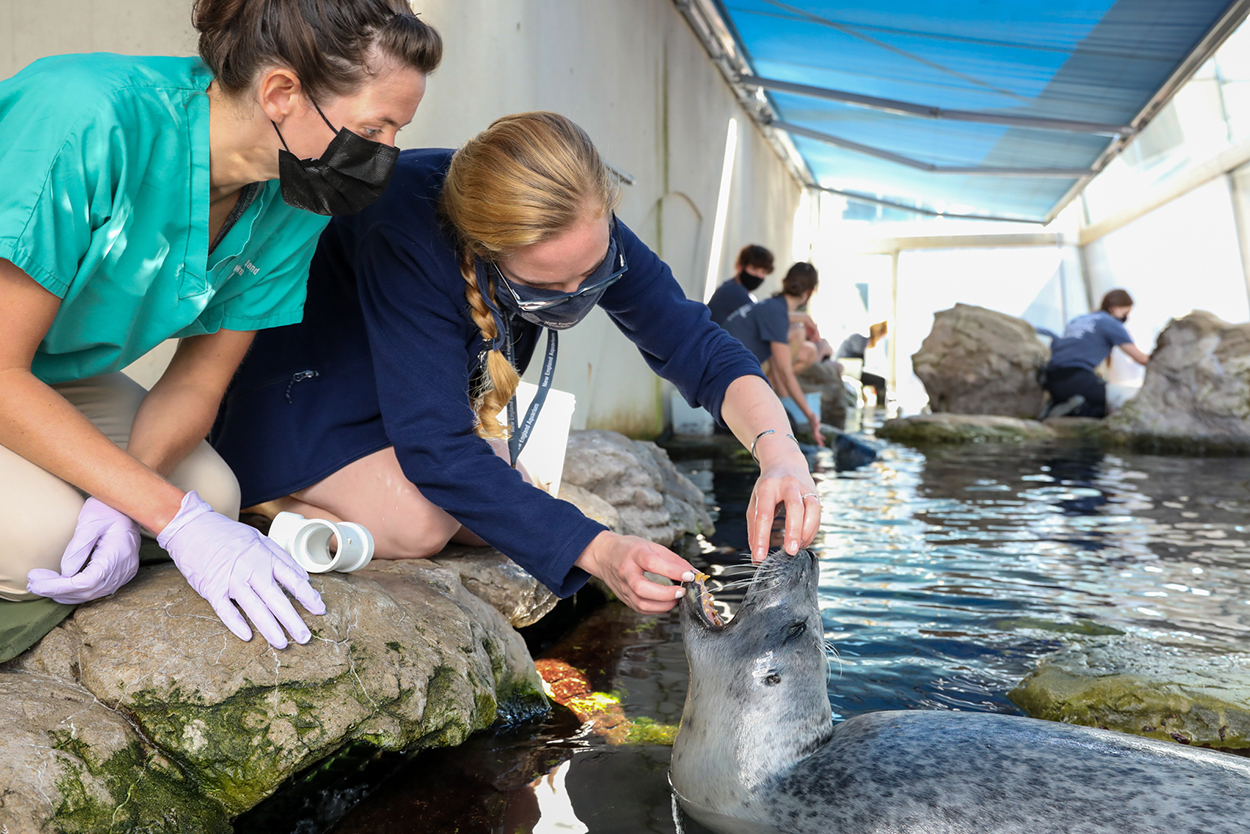
Dr. Melissa Joblon, our director of Animal Health, always knew she wanted to be a veterinarian. “It was a no-brainer,” she said, “I grew up Long Island, NY, close to the water and was always obsessed with animals and everything having to do with the ocean.”
Following graduation with her Bachelor of Science in Animal Science and Technology from the University of Rhode Island in 2007, she first joined the Aquarium back in 2007 as an intern—an experience where she said, “Everything clicked.” It was then she realized that there were roles that combined her love of animals and the ocean with her interest in clinical medicine. “It was incredible to see how much you could achieve as an aquatic vet, and I really loved the connection between medicine and ocean conservation,” Mel said, whether it was performing surgery on fishes or helping care for injured sea turtles.
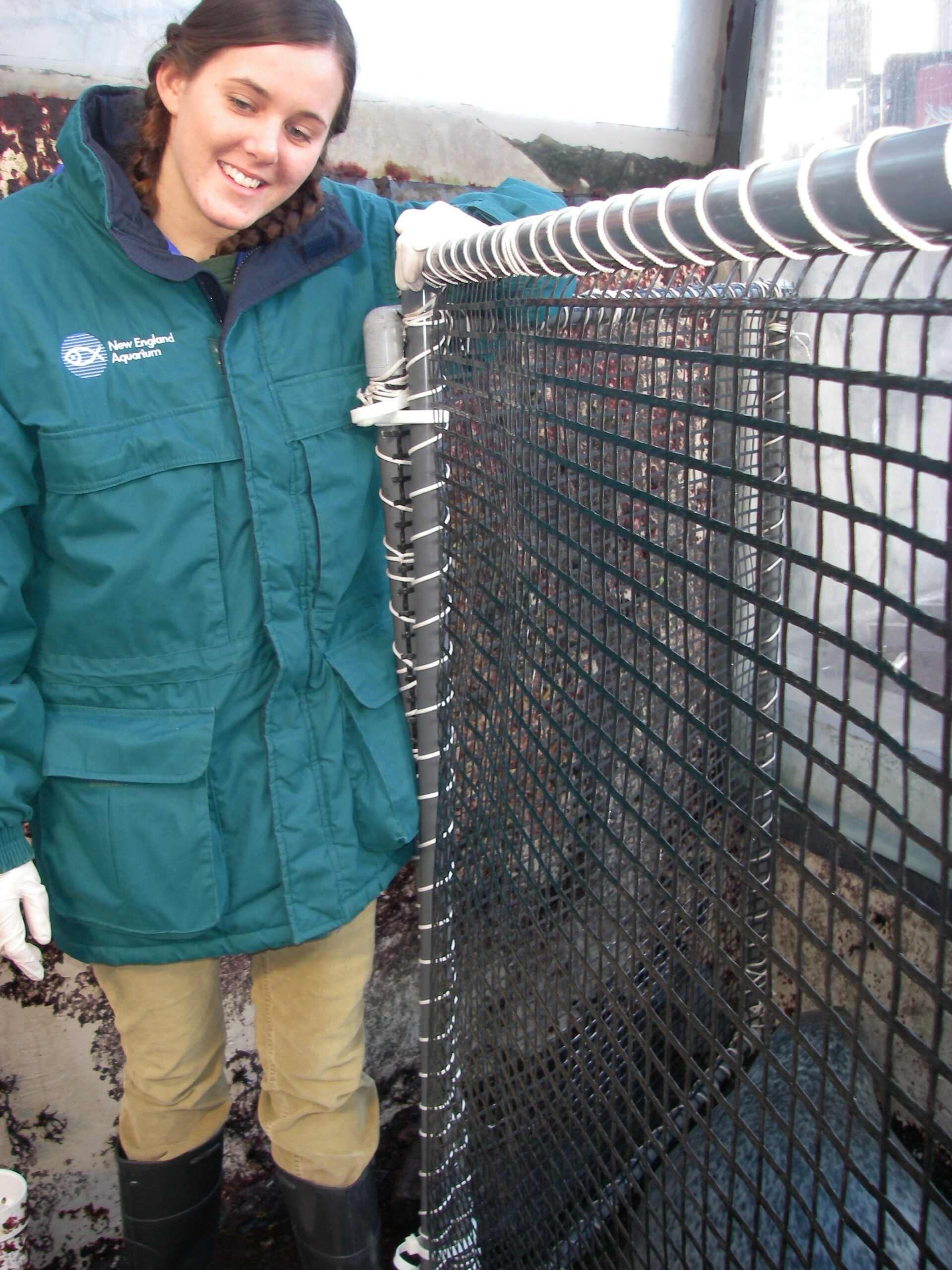
While that early experience set her on the path to where she is now, leading the department, her journey was anything but straightforward. After Mel’s internship ended, she traveled and worked around the world, from nearby Mystic Aquarium and veterinary hospitals in Boston, to the Honolulu Zoo and even as far away as James Cook University in Australia. In all of those roles, she continued honing her husbandry and technical skills—but had yet to become a licensed veterinarian.
“When I finally decided to apply to vet school and I didn’t get in, I thought, ‘Oh, maybe this isn’t what I was meant to do,” Mel said. After the initial setback, she went to work as a research assistant at the Boston University School of Medicine, where, again, she focused on technical and diagnostic work with animals. “I was there on a two-year research contract, and although I learned a ton, it made me realize that the only thing I wanted for my career was to become a veterinarian.”
During that time, Mel was also taking graduate-level neuroscience courses. She took that experience, reapplied to veterinary school, and this time she got in. After her first year at Ross University in St. Kitts, she transferred to Tufts, where she received her doctorate in 2016.
Even then, after graduating, it would still be several years and several jobs before Mel landed back at the Aquarium, including completing a two-year specialty internship in aquatic medicine and research at Mystic Aquarium. All in all, around ten years passed between Mel’s initial internship at the New England Aquarium and when she returned as an associate veterinarian. In May of 2023, she became the Director of Animal Health. Then, in 2024, Mel also became a Board-Certified specialist in Zoological Medicine for the American College of Zoological MedicineTM, joining fewer than 350 diplomates of the American College of Zoological Medicine with this title—and even fewer with an aquatic specialty.
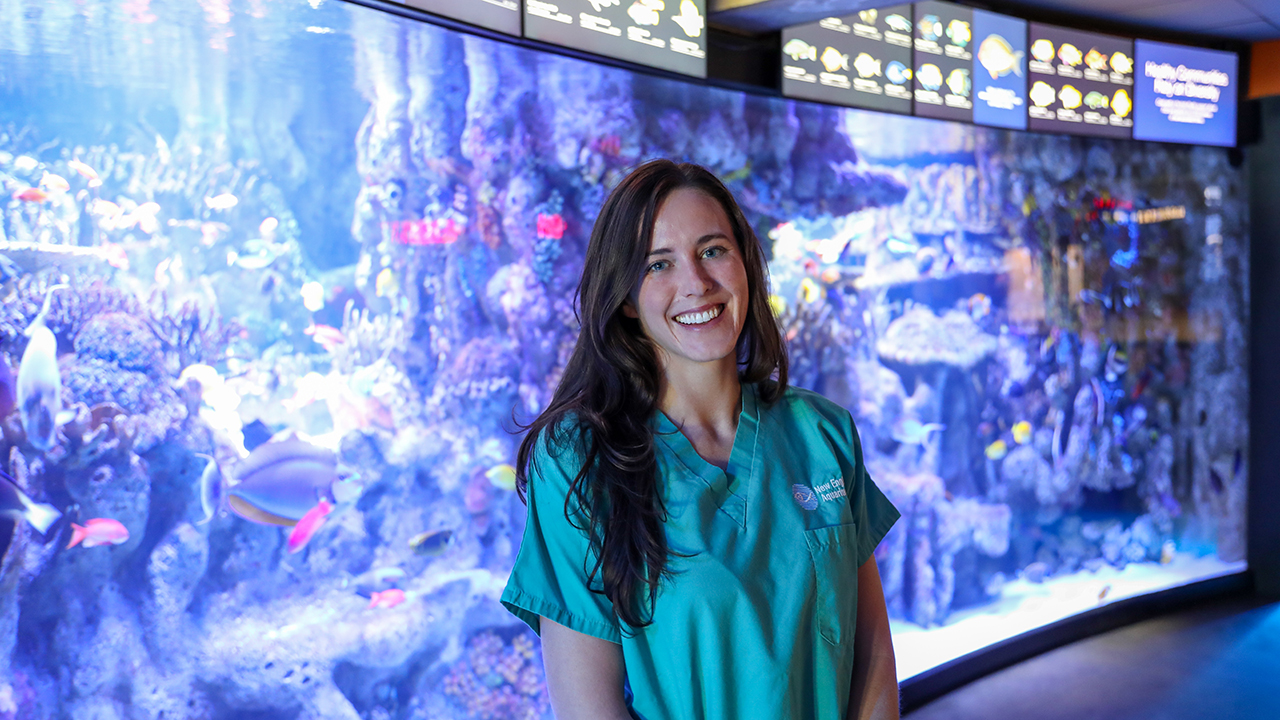
“It can be challenging,” Mel said of her job, which involves everything from organizational meetings to routine animal surgeries and exams and responding to urgent medical needs across the Aquarium. “But there’s nothing else in the world I would rather do.”
Looking back at her career path now, what’s her advice for others just starting out who are interested in veterinary medicine? “Just be open to the opportunities that come to them and realize that it is okay to forge your own path,” she said.

